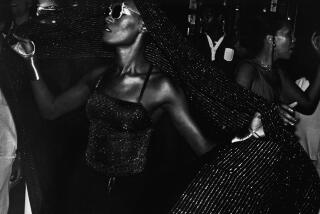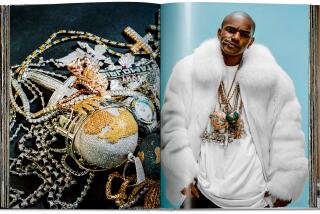Elitism: It’s an equal opportunity affliction
- Share via
Every NOW and then, writers at The Times lose a word. Mainly these are adjectives subject to misuse. Some years ago we were advised to let go of legendary. Similarly, don’t expect to see iconic, which has become equally cheapened, in the paper much anymore.
The adjectival criminal I’d like to see handed over to the word police is elitist, especially in its relationship to the arts and popular culture. In the “elitist” Oxford English Dictionary, the first definition of “elite” is the “choice part, the best (of society, a group of people, etc.),” none of which sounds so terrible. But that is not what is meant when, say, classical music, my field, is scorned as elitist, as it regularly is.
One tack many of us in the arts choose is to proudly take back the word. “Hey, Bud, you got a problem with us being the best?” Of course, you do. The arts are seen as for the select few -- too expensive, too inaccessible, too chichi for the general public devoted to movies, pop music, television and sports.
In fact, the reverse can just as easily be true. Cinema and video and all kinds of music and even sports can, of course, be art -- or not. And the more popular something or someone is, the more likely elitism will occur. Google “rock god” -- which the supposedly non-elitist Urban Dictionary defines as “an artist that is so talented and amazing that he is worshiped as a god by his fans” (please note the “he”) -- and you will have the option of spending the next several days running through a half-million results. Go for “classical music god” and you are blessed with free time, unless you wish to get hung up on such items as “ . . . classical music (God, I hate the term). . . . “
A ticket to hear the Los Angeles Philharmonic in fancy-schmancy Walt Disney Concert Hall may not always be easy to come by at the last minute and top seats are now $147. But for most programs, bench seats behind the stage (which many love) go on sale two weeks before the concert for $15. Do I need to detail the princely sums in the thousands it takes to attend an NBA playoff? On Broadway, $400 tickets no longer raise eyebrows. At Disney, we are a democratic audience who sit together. In the supposedly populist Staples Center, luxury suites resemble nothing so much as the royal boxes in European opera houses of old. Anyone can go to an art museum, but not anyone can get past the bouncers at the latest in-crowd club.
Let’s not even get into how the epithet “elitist” has sullied a lot of recent political attacks.
Breathing rarefied air
In SPORTS, the best athletes are still known as the elite. Anyone who rides a bicycle knows that a cyclist able to wear the yellow jersey in the Tour de France is no mere mortal. And isn’t the scandal about doping in the Tour really a scandal about elitism? Performance-enhancing substances may have side effects, but I suspect the real fear is that these drugs have the potential of making the rest of us better athletes and the pros less special.
But the argument is actually much more complicated and more interesting than that. The arts are both elitist and non-elitist, and so is popular culture.
I try to follow the Tour, which is witnessed by hundreds of thousands of fans who line the route over three weeks. This is an epic event and requires at least the time and effort of reading Homer. And explanations of ancient Greek mores are easier to come by (and I think comprehend) than the arcane Tour culture.
The other day I visited Amoeba Music with Times television critic Robert Lloyd, who performs in a rock band and is an authority on pop culture. I told him that these days, I felt as intimated by the pop section as people tell me they are by the classical department. He said that even he could no longer manage the amount of specialized knowledge that pop music now requires to have a full grasp of the field. Hip-hop and dub have become suitable for graduate level course work. Is that elitist or what?
On the other hand, some of the classical music that has been around for a century or two is simply in our cultural blood, having long ago instituted itself into film soundtracks and popular music. Sure, it helps to know a little something about it, just as you need to know a little something about baseball to enjoy a game. But elitism, in its pejorative sense, is a state of mind, not a cultural phenomenon.
--
More to Read
The biggest entertainment stories
Get our big stories about Hollywood, film, television, music, arts, culture and more right in your inbox as soon as they publish.
You may occasionally receive promotional content from the Los Angeles Times.











